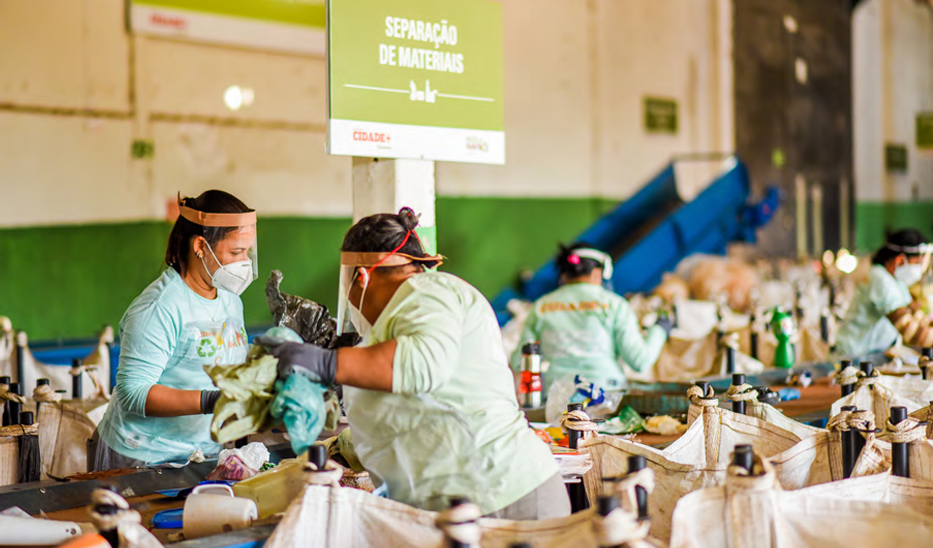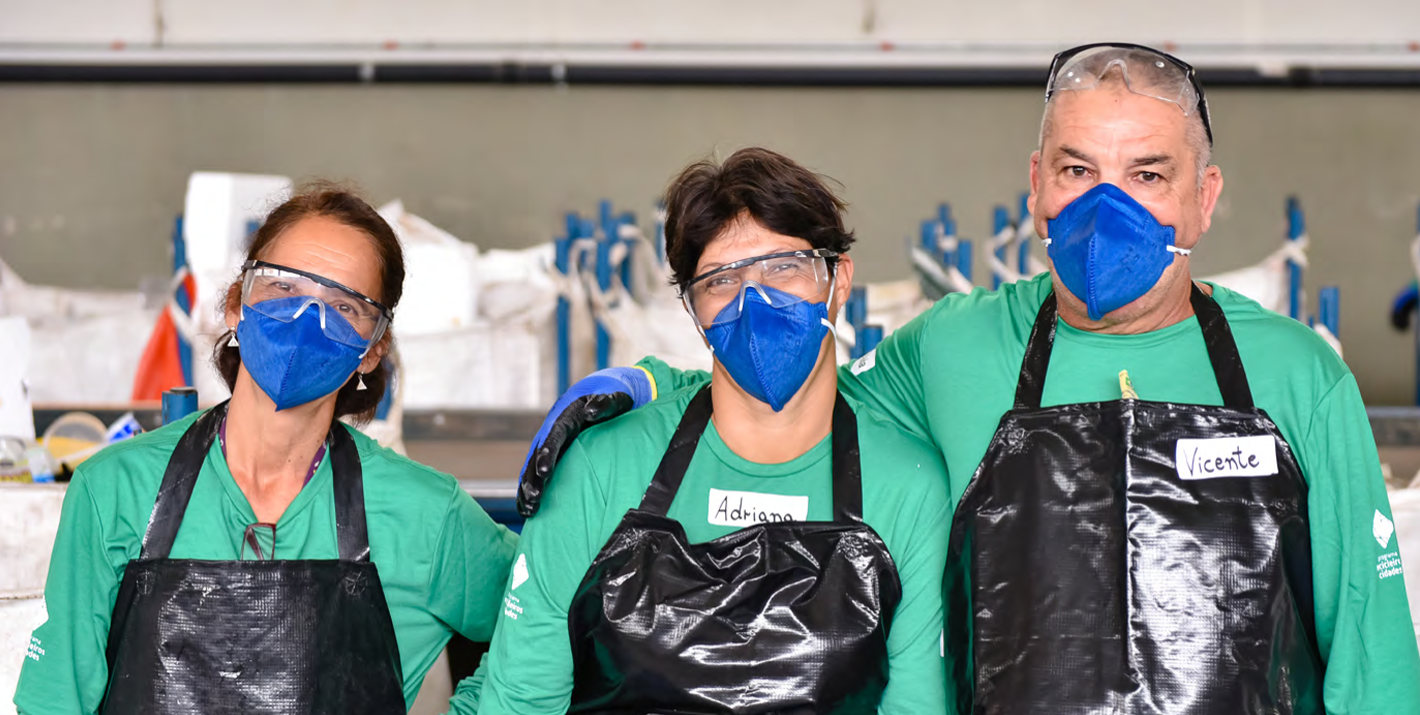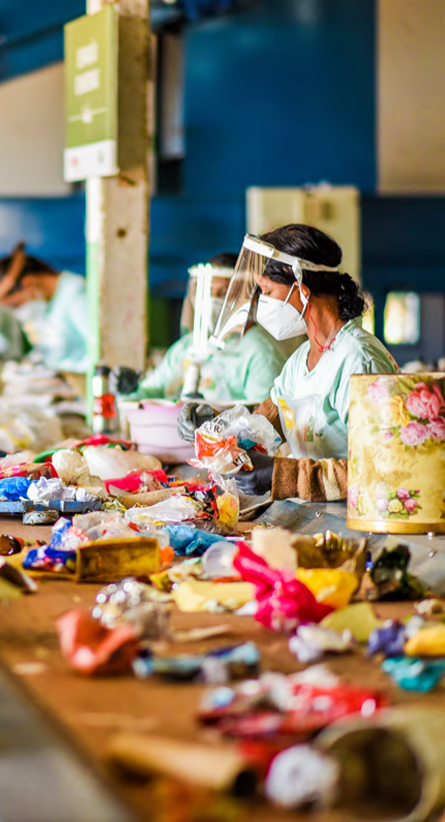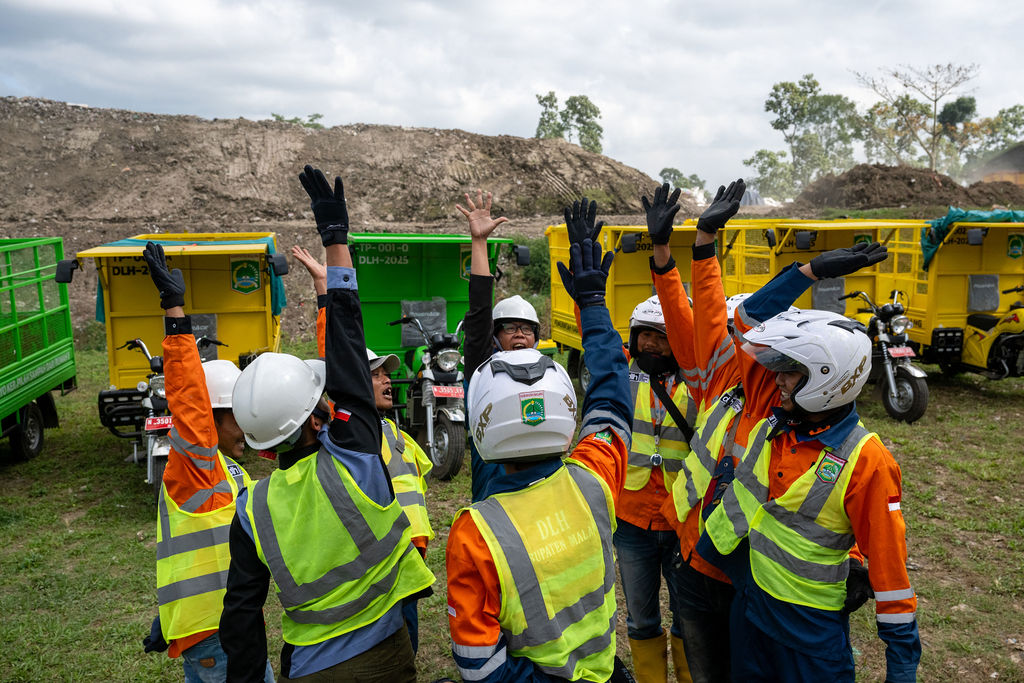
Helping Brazil’s cities make recycling pay
Recicleiros, an Alliance-funded NGO, is working at the forefront of developing systemic solutions for recycling in Brazil, exploring new business models that make waste management more inclusive and sustainable.
Recycling in Brazil is often seen as an economically unviable activity. Prices for Post-Consumer Recyclable (PCR) materials are too low to cover collection and processing costs. Recicleiros, an Alliance-funded NGO, is working to shift this perception. For nearly two decades, it has been at the forefront of developing systemic solutions for recycling in Brazil— exploring new business models that make waste management more inclusive and sustainable.
Since 2019, Recicleiros has established 14 public recycling systems across small and medium-sized cities in Brazil, bringing recycling programmes to these communities for the first time.
It started with a pilot in Ceará and has since developed into a tried-and-tested waste management model. The organisation intends to grow this model to reach 60 cities throughout Brazil, with goals to generate 3,000 new jobs and process at least 30,000 tonnes of plastic waste annually.

Another important component of Recicleiros’ work is integrating waste pickers into formal recycling systems— empowering them by formalising their roles and offering better working conditions. This includes providing waste pickers with training, technical support, and resources.
Recicleiros has also launched the Waste Worker Development Centre (Núcleo de Desenvolvimento do Catador), establishing the Recicleiros Waste Worker Academy (Academia do Catador), a free online learning platform that offers technical and professional training paths for informal waste pickers organised in co-operatives.

For the general public, Recicleiros runs behaviour change programmes to raise awareness of recycling best practices, including educating local communities about the importance of proper waste sorting and segregation. This community education is based on the philosophy that recycling is an act of belonging— actions residents can take to have cleaner neighbourhoods.
In 2024, Recicleiros focused on building economically sustainable sorting centres. These centres recover recyclable materials from household and municipal waste streams, bringing them to the market for recycling. While the project made progress, it also faced significant challenges. The cost of maintaining these centres, including paying minimum wages and providing personal protective equipment (PPE), is high, while prices for recyclable materials have remained stagnant.

To address these challenges, Recicleiros has been working on establishing contracts with municipalities to fund recycling services. Recicleiros combines waste collection service fees with revenue from the sale of recyclates to create an economically-viable business model.
By convening the actors in the plastics value chain, the project helps local authorities create inclusive, high-impact, and economically viable recycling systems at speed and scale. Cities must apply to be involved, passing a rigorous qualification process that takes into account their infrastructure, resources, capability, as well as their long-term commitment.
Despite funding challenges, the project has made some progress. Its future success relies on continued cooperation between municipalities and the private sector to ensure fair pricing and adequate funding for recycling.
Stay in the loop
Subscribe to our newsletter for the latest news and updates from the Alliance







